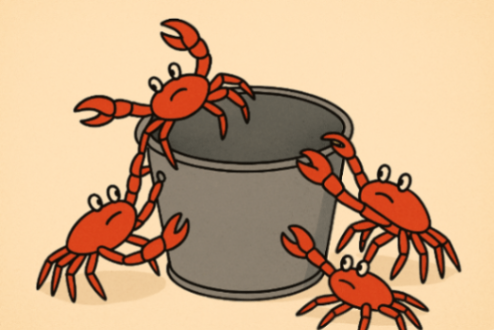
Crab Mentality: The Philosophy and Psychology of Collective Sabotage
In a bucket of crabs, when one climbs upward, others pull it back down. This has become a metaphor for human behavior: collective sabotage that prevents progress. Philosophical View Collectivity vs. freedom: Hobbes saw order in control, but pulling others down also suppresses personal growth. Equality and envy: Aristotle’s “political animal” thrives in community, yet equality often turns into resentment—“If I can’t have it, neither can you.” Nietzsche: Crab mentality mirrors slave morality, where the weak gain comfort by restraining others instead of empowering themselves. Psychological View Social comparison: Success of others triggers anxiety and envy, leading to sabotage rather than self-improvement. Group pressure: Communities demand conformity, so those who rise are branded as traitors—in workplaces, schools, even families. Inferiority (Adler): Dragging others down projects one’s own sense of inadequacy. Reality Workplaces: High achievers face gossip or pressure not to “stand out.” Politics: Elites block challengers, while the public shares resentment. Culture: Education often rewards conformity, institutionalizing this mentality. Overcoming It Focus on self-growth, not sabotage. Respect individual freedom so that one’s rise lifts all. Redefine success: another’s achievement is proof of shared potential, not personal failure. Summary Crab mentality is more than jealousy; it reflects tension between group security and individual freedom. To transcend it, society must view personal success as collective opportunity.
jin-ovw
1
Views 24 •
Society